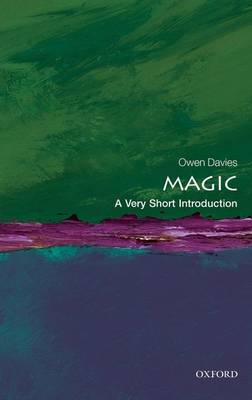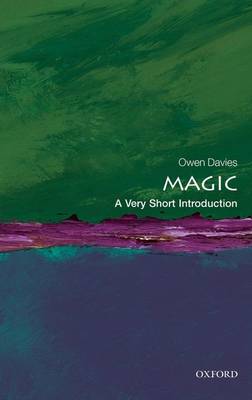
- Afhalen na 1 uur in een winkel met voorraad
- Gratis thuislevering in België vanaf € 30
- Ruim aanbod met 7 miljoen producten
- Afhalen na 1 uur in een winkel met voorraad
- Gratis thuislevering in België vanaf € 30
- Ruim aanbod met 7 miljoen producten
Zoeken
€ 13,95
+ 27 punten
Omschrijving
Magic is a much-used term with a complex and controversial history. As a concept and a practice, it has attracted the attention of theologians, anthropologists, psychologists, sociologists, artists, and historians over the centuries. This Very Short Introduction explains why. Magic has been defined in terms of the false religions of others, as an evolutionary stage in human thought, a universal state of mind, and a liberating expression of the imagination. For hundreds of millions of people today, no matter their religious persuasion, magic is a real force that helps them to overcome misfortune, poverty, and illness. Indeed, with magic as relevant today as it ever was, it raises questions about the meaning of human progress.
Specificaties
Betrokkenen
- Auteur(s):
- Uitgeverij:
Inhoud
- Aantal bladzijden:
- 160
- Taal:
- Engels
- Reeks:
Eigenschappen
- Productcode (EAN):
- 9780199588022
- Verschijningsdatum:
- 20/02/2012
- Uitvoering:
- Paperback
- Formaat:
- Trade paperback (VS)
- Afmetingen:
- 109 mm x 170 mm
- Gewicht:
- 113 g

Alleen bij Standaard Boekhandel
+ 27 punten op je klantenkaart van Standaard Boekhandel
Beoordelingen
We publiceren alleen reviews die voldoen aan de voorwaarden voor reviews. Bekijk onze voorwaarden voor reviews.











